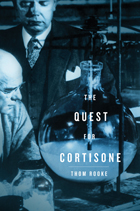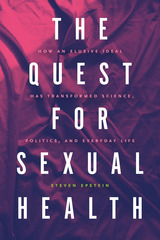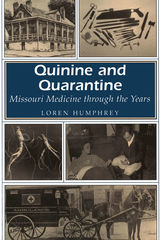5 start with Q start with Q


In 1948, when “Mrs. G.,” hospitalized with debilitating rheumatoid arthritis, became the first person to receive a mysterious new compound—cortisone—her physicians were awestruck by her transformation from enervated to energized. After eighteen years of biochemical research, the most intensively hunted biological agent of all time had finally been isolated, identified, synthesized, and put to the test. And it worked. But the discovery of a long-sought “magic bullet” came at an unanticipated cost in the form of strange side effects. This fascinating history recounts the discovery of cortisone and pulls the curtain back on the peculiar cast of characters responsible for its advent, including two enigmatic scientists, Edward Kendall and Philip Hench, who went on to receive the Nobel Prize. The book also explores the key role the Mayo Clinic played in fostering cortisone’s development, and looks at drugs that owe their heritage to the so-called “King of Steroids.”

Since the 1970s, health professionals, researchers, governments, advocacy groups, and commercial interests have invested in the pursuit of something called "sexual health." Under this expansive banner, a wide array of programs have been launched, organizations founded, initiatives funded, products sold—and yet, no book before this one asks: What does it mean to be sexually healthy? When did people conceive of a form of health called sexual health? And how did it become the gateway to addressing a host of social harms and the reimagining of private desires and public dreams?
Conjoining "sexual" with "health" changes both terms: it alters how we conceive of sexuality and transforms what it means to be healthy, prompting new expectations of what medicine can provide. Yet the ideal of achieving sexual health remains elusive and open-ended, and the benefits and costs of promoting it are unevenly distributed across genders, races, and sexual identities. Rather than a thing apart, sexual health is intertwined with nearly every conceivable topical debate—from sexual dysfunction to sexual violence, from reproductive freedom to the practicalities of sexual contact in a pandemic. In this book Steven Epstein analyzes the rise, proliferation, uptake, and sprawling consequences of sexual health activities, offering critical tools to assess those consequences, expand capacities for collective decision making, and identify pathways that promote social justice.

With all the intrigue and twists of a mystery, Questions for Freud uncovers the paradoxes that riddle psychoanalysis today and traces them to Freud's vacillation at key points in his work--and from there to a traumatic event in Freud's life.
What role did censored family history play in shaping Freud's psychological inquiries, promoting and impeding them by turns? With this question in mind, Nicholas Rand and Maria Torok develop a new biographical and conceptual approach to psychoanalysis, one that outlines Freud's contradictory theories of mental functioning against the backdrop of his permanent lack of insight into crucial and traumatic aspects of his immediate family's life. Taking us through previously unpublished documents and Freud's dreams, his clinical work and institutional organization, the authors show how a shameful event in 1865 that shook Freud and his family can help explain the internal clashes that later beset his work--on the origins of neurosis, reality, trauma, fantasy, sexual repression, the psychoanalytic study of literature, and dream interpretation.
Steeped in the history, theory, and practice of psychoanalysis, this book offers a guide to the wary, a way of understanding the flaws and contradictions of Freud's thought without losing sight of its significance. This book will alter the terms of the current debate about the standing of psychoanalysis and Freud.

Presenting a fascinating overview of medicine in Missouri from the early days of epidemics to present-day technological advances, Quinine and Quarantine approaches the history of medicine as an integral part of the state's development.
Examining the changing environmental risks and diseases that threatened Missouri over the years and the role of the Missouri and Mississippi Rivers as prime routes for the spread of diseases and innovations, Loren Humphrey discusses the efforts of citizens, legislators, and health officials confronting various medical challenges. He offers intriguing medical details of the past two centuries interspersed with the stories of significant historical figures and Missourians' personal accounts. He tells of the pioneers' struggles to use natural remedies acquired from Native Americans, the gory and unsanitary attempts to treat early gunshot wounds, and the common afflictions and diseases such as "swamp fever," measles, mumps, consumption, dysentery, smallpox, and typhoid that seemed beyond medicine's effects. Humphrey also discusses the significance of the discovery and reluctant acceptance of the "antifever" breakthrough now famous as quinine, as well as the lessons learned as a result of Civil War medical techniques.
Quinine and Quarantine takes readers on a remarkable journey that concludes in the present, arguably the most exciting and controversial era for medical advances. Humphrey explores new imaging techniques, laparoscopic surgery, and research on ways to overcome bacterial resistance to antibiotics. He challenges the reader to consider such compelling issues as the escalating cost of health care and the threats posed by environmental hazards. He also identifies topics over which Missourians will likely struggle well into the next century, such as transplants, managed care, abortion, and assisted suicide.
Organized chronologically in fifty-year segments and written in language free of jargon, Quinine and Quarantine offers readers a broad historical view of the medical problems and solutions faced by the people of Missouri, preparing them to cope with medical issues of the new millennium.
READERS
Browse our collection.
PUBLISHERS
See BiblioVault's publisher services.
STUDENT SERVICES
Files for college accessibility offices.
UChicago Accessibility Resources
home | accessibility | search | about | contact us
BiblioVault ® 2001 - 2024
The University of Chicago Press









